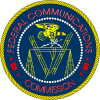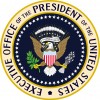The FCC is directed by five commissioners appointed by the president of the United States and confirmed by the U.S. Senate for five-year terms, except when filling an unexpired term. The president designates one of the commissioners to serve as chairman. Only three commissioners may be members of the same political party, and none can have a financial interest in any commission-related business.
The Federal Communications Commission regulates interstate and international communications by radio, television, wire, satellite and cable in all 50 states, the District of Columbia and U.S. territories. An independent U.S. government agency overseen by Congress, the commission is the United States’ primary authority for communications law, regulation and technological innovation. In its work facing economic opportunities and challenges associated with rapidly evolving advances in global communications, the agency capitalizes on its competencies in:
- Promoting competition, innovation and investment in broadband services and facilities
- Supporting the nation’s economy by ensuring an appropriate competitive framework for the unfolding of the communications revolution
- Encouraging the highest and best use of spectrum domestically and internationally
- Revising media regulations so that new technologies flourish alongside diversity and localism
- Providing leadership in strengthening the defense of the nation’s communications infrastructure





